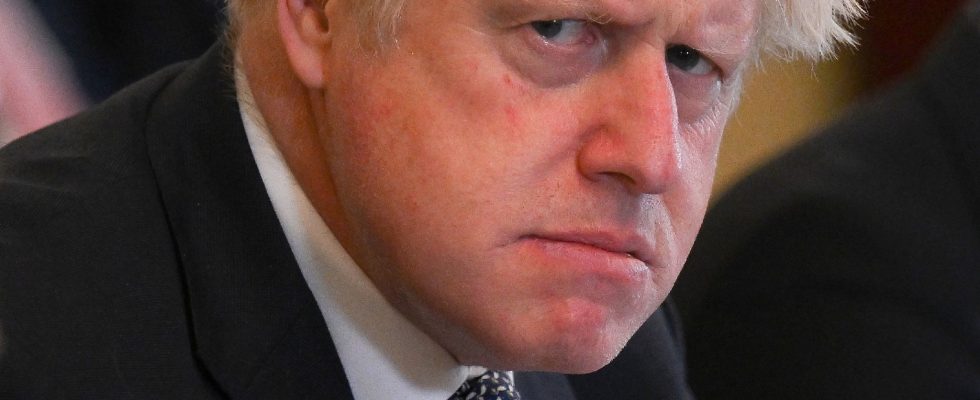Boris Johnson’s political horizon darkens. This Monday, June 19, a damning report concluded that the former Prime Minister had lied to Parliament in the “partygate” affair, these parties in full confinement during the Covid-19. As a result: British MPs banned Boris Johnson from Parliament.
On the very day of the 59th birthday of the former head of government, the elected members of the House of Commons therefore endorsed the conclusions of the parliamentary committee on the privileges and sanctions that it recommended against Boris Johnson. With 354 votes for, and only 7 against, the report was largely approved by the House of Commons, which has a total of 650 elected officials. But many abstained, including Prime Minister Rishi Sunak.
He no longer has an access badge to Parliament
Boris Johnson, who was forced to resign from Downing Street last summer after a series of scandals, finds himself deprived of his access badge to the premises of Parliament, which former Prime Ministers usually have.
The 106-page report published on Thursday also recommended his 90-day suspension from parliament – which would have led to a snap election in his constituency – but the ex-leader handed over his mandate as an MP shortly after obtaining the conclusions of the document .
This consultation of deputies has little concrete impact, but it represents a humiliation for the charismatic and controversial conservative. He called the report a “witch hunt” and cried out when it was published “political assassination”.
In this report, which reignited divisions within the majority, the commission concluded that he had “misled the House on a matter of the utmost importance to the House and to the public” and that “on several occasions”.
Theresa May takes a stand
According to the British press, the former Prime Minister had called on his supporters to abstain rather than oppose the report. Conservative and opposition MPs took turns for more than 5 hours in the House of Commons to give their opinion on the report, but beyond that on the former leader and on the “partygate”.
Minister for Relations with Parliament, Penny Mordaunt, said at the start of the session that she would vote in favor of the report, but without imposing any voting instructions: “All members must form their own opinion and the others should leave them alone in this respect”.
Prime Minister Rishi Sunak, whose rivalry with Boris Johnson is more than ever in the open, did not show up for the debate, saying he did not want to “influence” the vote, but this earned him accusations of ” weakness” on the part of Labour.
Former Conservative Prime Minister Theresa May called on all MPs to vote in favor of the report’s findings to ‘help restore confidence in our parliamentary democracy’. Boris Johnson “has fled the obligation to account for his lies (…). There has been no apology, no acceptance of an ounce of responsibility”, denounced Labor Angela Eagle.
For one of Boris Johnson’s closest allies, Jacob Rees-Mogg, the commission “deliberately tried to adopt the most unfavorable interpretation (…) of Boris Johnson’s activities”.
He became a columnist for the Daily Mail
The ex-leader, who will soon be a father for the eighth time, remains popular in his party for having implemented Brexit. In 2019, he came to power after a large electoral victory. But according to a poll, 69% of Britons and 51% of Tory voters think he did indeed lie to Parliament.
Boris Johnson, ex-journalist, has already found a new activity: he has been hired as a columnist by the conservative tabloid DailyMail.
Sunday, a new video published by the newspaper The Mirror showing members of the Conservative Party dancing at a party during the pandemic in defiance of distancing rules has drawn strong criticism.
This umpteenth adventure around the “partygate” occurs at a time when the Conservative government is more than ever under pressure to fight against inflation and the rise in interest rates which is causing mortgages to soar.
At its lowest in the polls against the Labor opposition, the party, in power for 13 years, will face four partial elections in a bad position in the coming months.
